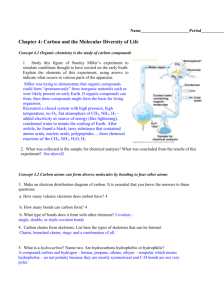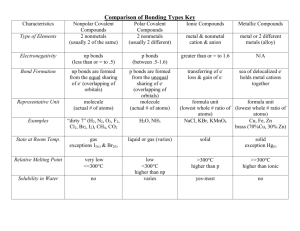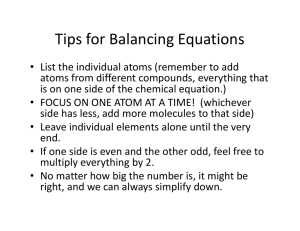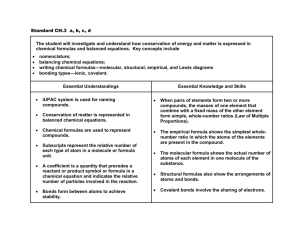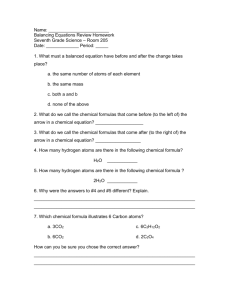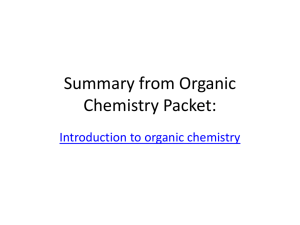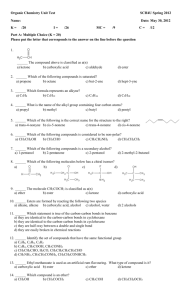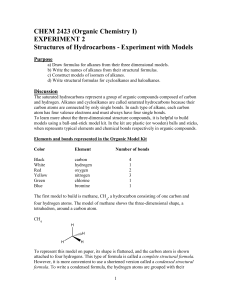ppt
advertisement
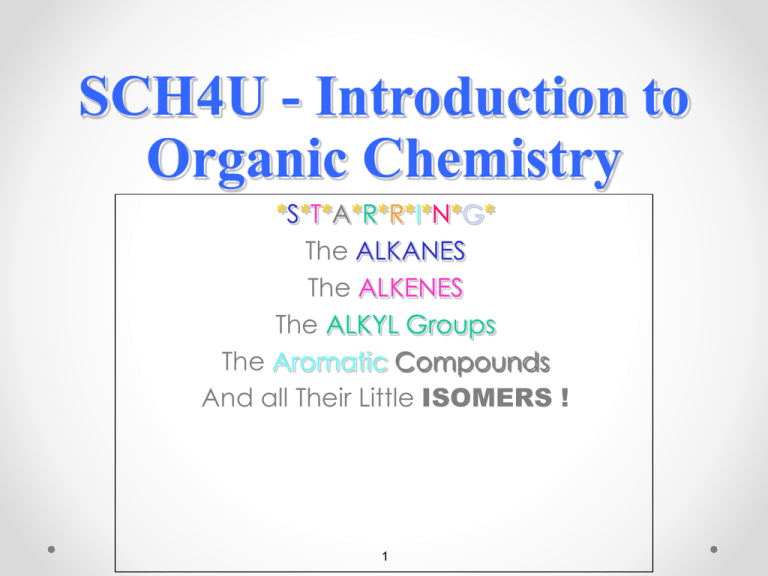
SCH4U - Introduction to Organic Chemistry *S*T*A*R*R*I*N*G* The ALKANES The ALKENES The ALKYL Groups The Aromatic Compounds And all Their Little ISOMERS ! 1 And Co-Starring *S T R U C T U R E S* and Formulas With special mention to The International Union of Pure and Applied Chemistry 2 Structural Features of Carbon Compounds • • • • The compound may be open-chained or cyclic. Chains may be straight or branched. May be saturated or unsaturated. Rings can be carbocyclic or heterocyclic. • You will be dealing with ALL these cases at one time or another in this class! 3 Structures and Chemical Formulas • Molecular formulas are only useful for the very simplest compounds such as CH4 or C2H6, since they give no information on how atoms connect. • There is usually more than one way to arrange the atoms listed in the molecular formula • Expanded molecular formulas show atoms in the order that they appear, with brackets to indicate groups attached to chains. –ie) CH3C(CH3)2CH2CH3 4 More ways to represent... Organic compounds can be very complex! • A system is needed that shows structure. Skeleton structures Expanded structures (full structural formulas) Condensed structural formulas Line representations Skeleton Structures • Skeleton structure or skeleton formula • • • Leaves out the hydrogen atoms. For hydrocarbons, only the carbon skeleton and connecting bonds are shown. Bonds are represented as lines. . • – Example: Isobutane C C-C-C 6 Expanded Structural Formulas • Expanded structural formula • • Shows all atoms with bonds. Bonds are represented as lines – Example Isobutane • Also called a full structural formula. 7 Condensed Formulas • Condensed formula • • • Shorthand way of writing formula. Lists all atoms in order and tells how they are bound together. C-H bonds are assumed, not shown – Example: Isobutane 8 Line Structural Diagrams • Line formula or line representation • • • • The end of each line or meeting point represents a carbon atom Hydrogen not shown, assumed Zig zag pattern for single and double bonds, triple bonds are in straight line Example: Isobutane 9 Isomers • Structural Isomers: Compounds with the same number of atoms and bonds but with different arrangements. – CH3CH2CH2CH2CH3 CH3CH(CH3)CH2CH3 10 (CH3)4C Geometric Isomers Compounds which have the SAME molecular formula, but different arrangements of atoms around a double carbon-carbon bond • These exist when two or more arrangements are possible due to the type of bond. • Alkanes - can rotate about all bonds – no geometric isomers • Alkenes - rigid bond – can have geometric isomers • Alkynes - rigid bond but linear – no geometric isomers Geometric Isomers (continued) There are two possible arrangements Example H3C H C=C 2-butene CH3 H3C H H cis Two methyl groups are on the same side (and so are the two H’s. 12 H C=C CH3 trans Two methyl groups are on opposite sides.
